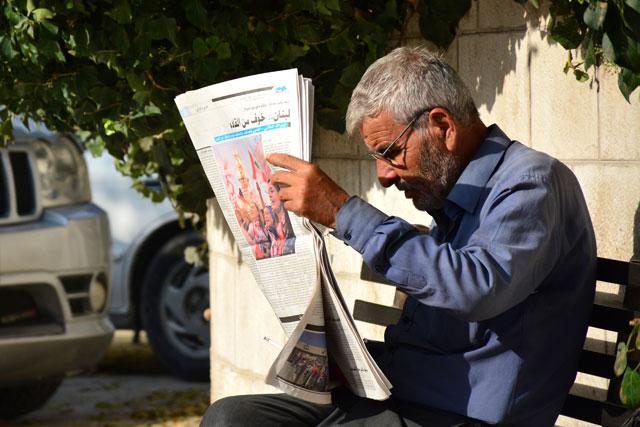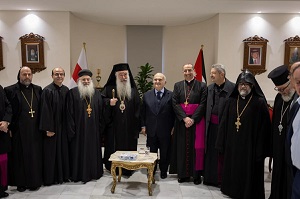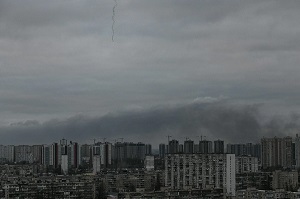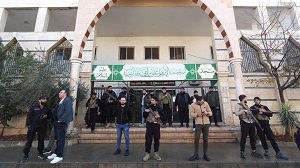Experts share insight on print media strategies

The Jordan Times
AMMAN — Print media was struggling even before the coronavirus crisis started but problems deepened during the three-month lockdown period when printing stopped, blocking revenue from ads, and the pandemic's impact can visibly be seen locally and around the world.
The responsibility of saving the sector lies in the hands of the newspapers' boards of directors, chief editors and journalists, who should meet together to brainstorm and address the challenges facing the sector, media and communication specialist Bayan Tal told The Jordan Times over the phone on Wednesday.
"They are supposed to be the experts, and it is part of their job to communicate and propose solutions to the government, which they call on to bail them out," Tal said, noting that a focus group with experts, from inside and outside the organisations themselves, can help bring a lot of expertise to the table.
"The media is perhaps not a priority for the government, which is unfortunate, because media is a huge asset for any country, and I mean an independent and professional media," she added.
Therefore, coming up with solutions and saving the sector is the responsibility of all boards of directors, journalists, the local society and the state with all its institutions, "who should all come together and identify the problem and find the solutions as a group, as one unit".
Short-term solutions do not work, and struggling to pay salaries month by month does not help, Tal said, alluding to the “bloated number” of people in some organisations as well as the lack of experts and professional journalists, “which is caused by nepotism in hiring journalists”.
"People are on social media platforms and are getting misled by false and biased information, which is constantly affecting the way we think and operate, which is very unhealthy and bad for our national security and our wellbeing as a community," the expert said, noting that turning digital is one of the solutions.
Tal highlighted the print media's struggle around the world, as many organisations have completely shut down and went online, which she said is a viable option.
However, under this option- Tal said that it is necessary to "re-train" journalists on how to publish online content, which she said "has to be improved and different, it is a completely different style, what we see in print should not be what goes online".
The improved content should be professional enough to prevent the public from receiving their news somewhere else and circulating fake information that is misleading and could have different agendas that can bring harm to certain groups or individuals, such as the misinformation regarding COVID-19 with fake methods shared on combating it, she said.
President of the Centre for Defending Freedom of Journalists (CDFJ) Nidal Mansour said the subject of survival for newspapers requires rethinking of their entire management system and the way they view their readers.
"Newspapers still believe they have a sort of competitive edge, they do not work on specialised reports or media multitasking," Mansour said, noting that there are challenges in regards to how the making of newspapers does not cope with the current age.
Newspaper managements should enable their journalists, by for example focusing only on investigations, devoting the newspaper only to that sort of journalism, he said.
He added that the idea is to sell content, without which there will not be sustainability, as over 50 per cent of current content is recurrent on different platforms and outlets.
"There is a need for independent media... and so we need an independent fund to support the media, which requires transparent criteria and standards on the means to support the media," Mansour said.
He added: "I support the idea of supporting the media, but with changing the rules of the game; so the general budget of the state supports this fund."
Even if print media continues, "there needs to be approach to turn digital," Mansour said, explaining that "if a media outlet is not present on social media and competing there, it will be as if it does not exist".
The CDFJ president said that social media is the trend nowadays, even more than websites, noting that there are media outlets completely present solely on social media without a website or printing.
Mansour agreed with Tal that the responsibility for saving the sector and resolving its problems falls to all involved entities, including the government, the management of print media organisations, and the Jordan Press Association (JPA).
In a panel discussion, organised on Monday by the Abdul Hameed Shoman Foundation, titled "Newspapers; an attempt to rise", several chief editors from various newspapers gathered on the Zoom platform to discuss the struggles of the sector.
In the meeting, JPA President Rakan Saaideh said that print media is facing a "true threat" and all entities must find solutions as soon as possible.
Direct support to newspapers has become a necessity, "and the idea of imposing taxes and fees on newspapers is not useful anymore", Saaideh said, noting that the state is committed to enabling media institutions to grow and solidify their presence.
Each organisation is facing its own problems, but what matters is ensuring the continuity of their work and the rights of their employees, he added.
Regarding the pandemic, the JPA president said that he found it “strange” that the media, out of all sectors, wasn’t allowed to benefit from the Himmat Watan Fund that was launched during the coronavirus crisis.
Latest News
-
 Netanyahu to Meet Trump in US on Monday for Talks on Iran, Gaza, Hezbollah, Syria
Netanyahu to Meet Trump in US on Monday for Talks on Iran, Gaza, Hezbollah, Syria
-
 JMD forecasts heavy rain, brisk winds, low visibility
JMD forecasts heavy rain, brisk winds, low visibility
-
 Prince Hassan congratulates Christians on Christmas
Prince Hassan congratulates Christians on Christmas
-
 Zelensky says Kyiv attack shows Russia does 'not want to end the war'
Zelensky says Kyiv attack shows Russia does 'not want to end the war'
-
 Same group behind Damascus church attack bombs Homs mosque
Same group behind Damascus church attack bombs Homs mosque